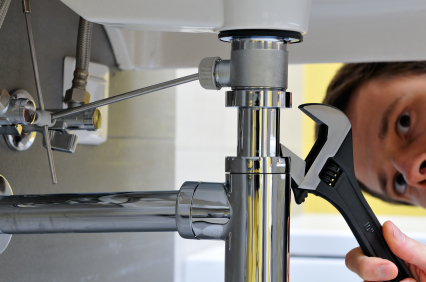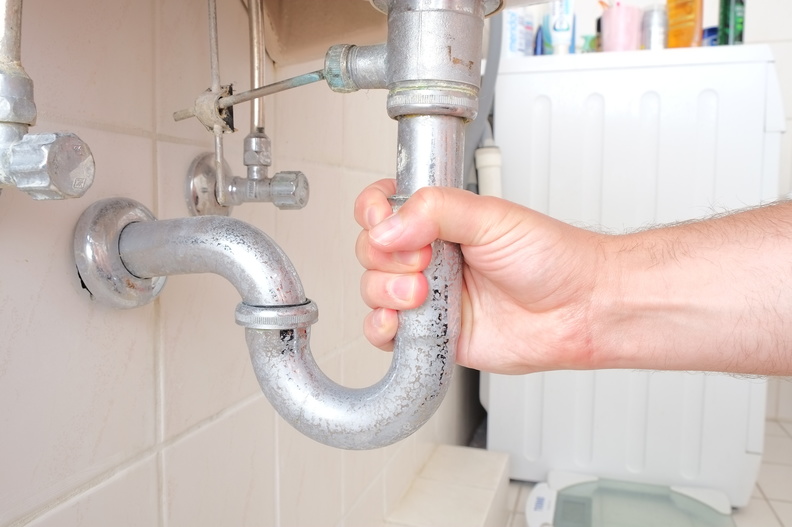They are making a few good pointers on the subject of What to Do While Waiting for an Emergency Plumber overall in this post on the next paragraphs.

Plumbing emergency situations can strike at any moment, causing stress and anxiety and possible damages to your home. Whether it's a ruptured pipeline, a blocked drain, or a leaky tap, recognizing exactly how to take care of the circumstance up until a specialist plumbing gets here can save you from additional difficulties. This post gives crucial emergency situation plumbing pointers to assist you mitigate damage and regain control during a plumbing crisis.
Switch off the Water
The very first step in any kind of pipes emergency situation is to turn off the water system. For localized issues, such as a dripping tap or bathroom, turn off the valve near the component. When it comes to a significant leak or burst pipe, situate your home's major water shut-off shutoff and turn it off instantly. Recognizing the area of these shutoffs in advance can save valuable time throughout an emergency situation.
Address Small Leaks with Short-lived Solutions
Little leaks can promptly come to be considerable problems if left unchecked. Make use of these momentary fixes till expert help arrives:
While these repairs aren't irreversible, they can help decrease water loss and damage.
Unclog Drains Pipes Securely
A clogged drain can be a frustrating and untidy concern. Here's exactly how to tackle it:
If these methods don't function, stay clear of using excessive force, as it might worsen the blockage.
Handle Overflowing Toilets
An overflowing commode can cause instant disorder. Right here's what you must do:
Shut down Your Water Heater
In certain emergencies, such as a ruptured pipeline, it's wise to shut off your water heater. This stops getting too hot or damages to the unit when water stops streaming. Shut off the power supply to the hot water heater (electrical or gas) and allow it cool to avoid potential risks.
Briefly Quit a Ruptured Pipeline
A ruptured pipeline can cause substantial water damages in mins. To mitigate the issue:
Call a specialist plumber quickly to resolve the trouble completely.
Take Care Of Frozen Piping Meticulously
In chillier climates, frozen pipes are a common emergency. If you believe an icy pipeline:
Avoid Further Damages
Taking fast action to reduce damage can conserve you money and time in the long run. Below's just how:
. Have an Emergency Pipes Set
Prepare a basic pipes emergency package to manage minor concerns efficiently. Your package ought to include:
Having these devices on hand can make a substantial difference in your capacity to handle emergency situations.
Know When to Call a Professional.
While quick fixes can aid briefly, certain pipes problems require prompt expert attention. Call a plumbing professional if:.
Quickly calling a specialist guarantees the issue is solved correctly and protects against more complications.
Conclusion.
Pipes emergency situations can be frustrating, yet with the appropriate understanding and tools, you can take care of the circumstance effectively until aid gets here. By switching off the water, dealing with little leakages, and utilizing short-lived fixes, you can decrease damage and keep your home safe. Bear in mind, these tips are short-term options; constantly speak with an accredited plumbing professional to handle the root cause of the problem. Prep work and fast reasoning are your best allies in any type of pipes emergency.
8 Helpful Tips for Managing Plumbing Emergencies at Home
If your plumbing system hasn’t failed once, wait for it because almost everyone has a story to tell. Sometimes, it could be simple emergencies such as a leaking pipe, a blocked cistern, or even a big burst pipe. In situations like this, you need to have some handy tips to save you some money and from possible damages.
Take care of minor issues early.
Sometimes, you could have avoided an emergency by taking proactive measures while it was still early. Some major plumbing emergencies can be a result of an ignored minor issue. We recommend that you have items like plumbing tapes and other related items. A plumbing tape can allow you to manage minor leaks before the plumber arrives.
Cut off the water supply.
This tip is essential in almost any type of leakage problem. For problems like minor leakages in the toilet or kitchen, turn off the supply that takes water to the affected pipes. If the leakage is a major pipe, you must shut off the supply valve to the entire building. This will help you avoid flooding your home and neighbors if you share a flat.
Know your plumbing system
Folks typically move into a new apartment without understanding the water supply around the building. This can prove disastrous if a water emergency arises and the plumber is far away. The previous tip will prove useless if you don’t practice this one. More importantly, know where your water shut-off valve is located – you’ll need that knowledge to prevent potential home floods.
Have some common handy tools
There are lots of plumbing emergencies that you can handle without hiring a plumber. That’s why you must keep some tools available always. Some tools that you can use to fix simple plumbing emergencies easily include plumbing tapes, screwdrivers, thread seal tapes, plungers, pliers, tape measures, and rubber gloves.
Insulate your pipes from cold
You’ll save yourself from many plumbing expenses if you protect your water pipes from the cold. This is because of the harmful effects that cold weather can have on your pipes. During winter, your pipes can burst from being overly expected to freezing temperatures. So, make sure insulators are there to keep the pipes working correctly.
Avoid practices that will clog your toilet.
Many people indulge in practices that can damage the plumbing system of the entire building. One of these is when they use their toilet to dispose-off garbage. They flush all kinds of things, such as paper towels, bandages, hairs, female sanitary products, etc., down the toilet. This will block your toilet in the long run, incurring unnecessary expenditures. Dump such waste in the trash instead.
Check your dials regularly.
Sometimes, there could be leakages in your home without noticing them in time. So, constantly monitor your water meter dial. If the dial is reading when there is nobody using water, this is an indicator that there is leaking. Check for leaks immediately. Call a plumber as soon as possible if you can’t find any.
https://www.constructionplacements.com/8-helpful-tips-for-managing-plumbing-emergencies-at-home/

Do you like more info about Plumbing Emergencies: Tips on What To Do Before? Put a remark down the page. We will be pleased to see your opinions about this posting. We are looking forward that you visit us again soon. Please pause to promote this blog if you appreciated it. Thanks a bunch for being here. Please visit our blog back soon.
Get Estimate